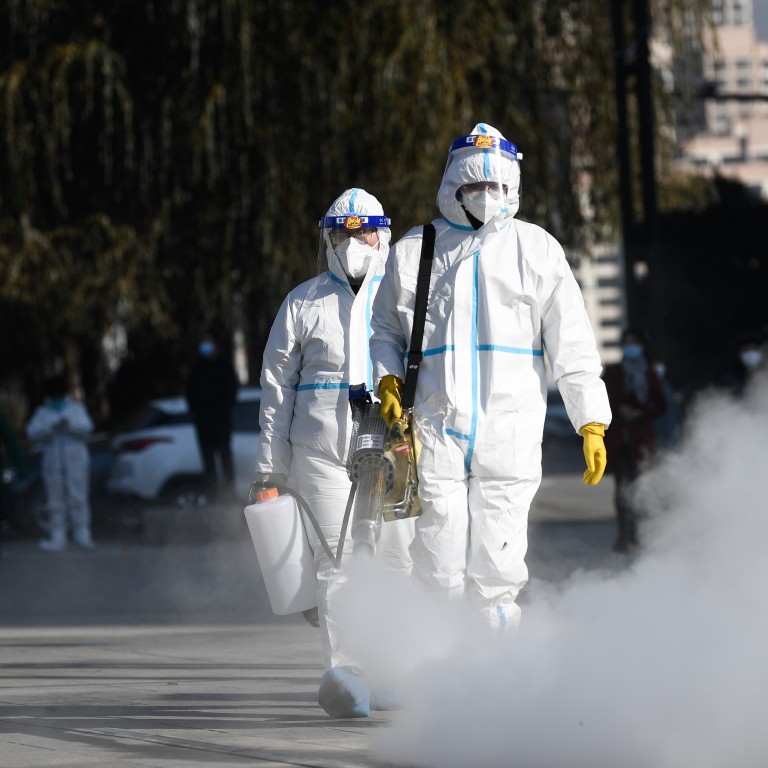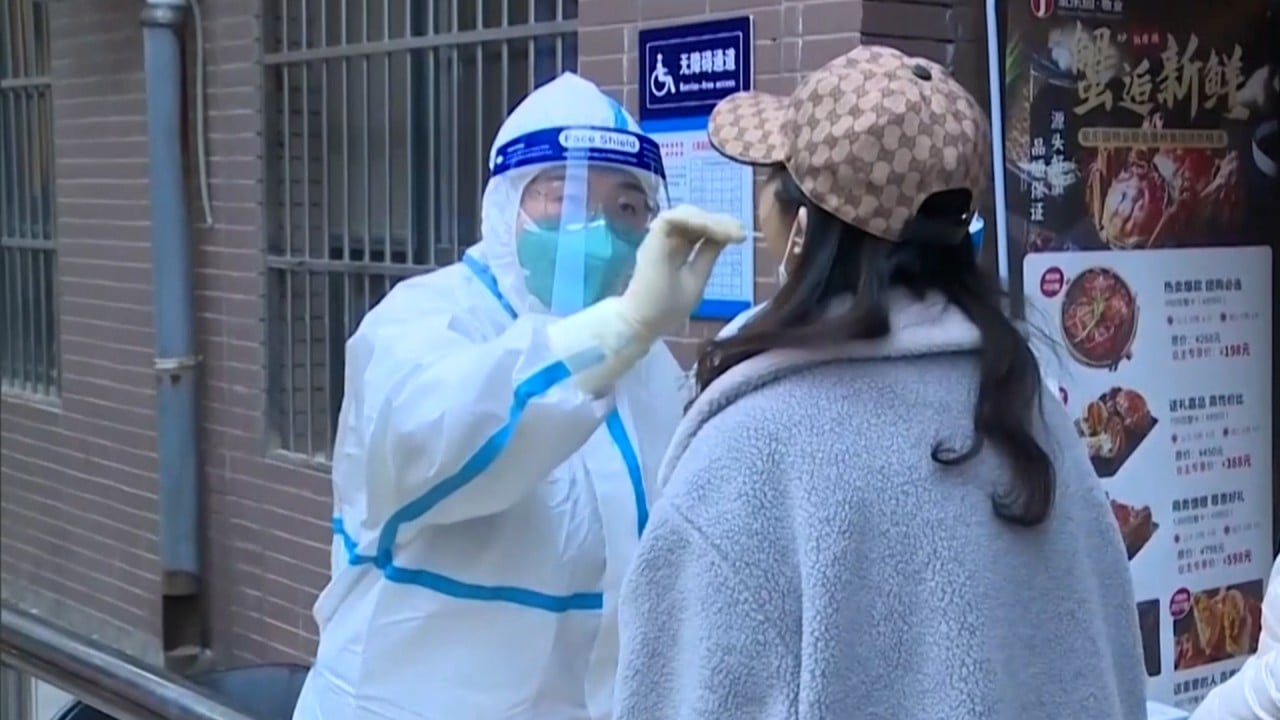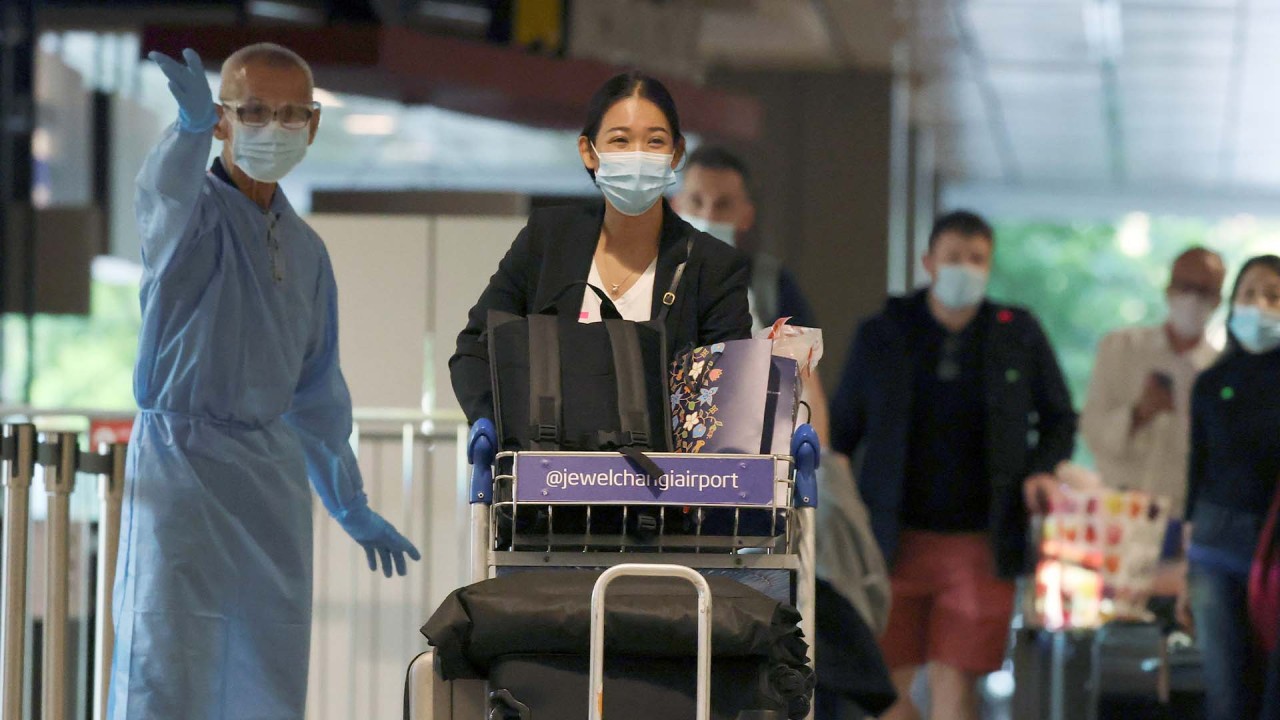
Explainer | Quarantine in China: why so long and does science back it up?
- Chinese authorities have a zero-tolerance strategy on Covid-19, with isolation periods of four weeks in some places
- Rules vary abroad, with some countries allowing vaccinated people to skip quarantine
In this series, we answer frequently asked questions about China’s strict zero-tolerance approach to Covid-19 including current entry restrictions, the length of quarantine and which tests travellers have to take. Have a question you want us to tackle? Drop us an email at [email protected].
Under the strategy, community cases and their close contacts are swiftly isolated and populations as large as a few million are repeatedly tested for the coronavirus.
It also means that travellers to China must first self-isolate and quarantine for longer than required in most other places.
How long is the quarantine in China?
For example, people entering Beijing must spend 14 days in a hotel, then seven days at home or a hotel, then another seven of “health monitoring”.
In Shenzhen, Hongkongers need to spend 14 days in quarantine then seven more being monitored for symptoms. Arrivals can ask to spend the second half of their quarantine period at home.
Some provinces have longer periods. Travellers to Shenyang, for instance, have to go through 28 days of quarantine in a hotel and then stay at home for another 28 days of health monitoring.

01:51
China steps up zero-tolerance approach to Covid-19 as Delta fears grow ahead of Beijing Olympics
What does science say about how long quarantine should be?
The length of quarantine is based on the coronavirus’s incubation period, the time between a person contracting the virus and starting to develop symptoms.
According to the Hong Kong Department of Health, most people with Covid-19 develop symptoms within 14 days of contracting the virus, with five days being the most common.
Critics of the 21-day isolation such as epidemiologist Ben Cowling and virologist Jin Dong-Yan of the University of Hong Kong say there is no evidence to support this arrangement. Cowling has repeatedly said an exit test after 10 days of quarantine is sufficient and 14 days of quarantine is “more than enough”.
Jin said the length of quarantine could be shorter for fully vaccinated individuals.
“Vaccination can shorten the window of virus shedding,” he said, referring to the phenomenon when the virus leaves the infected person through secretions in the nose and mouth. “The vaccinated people, because they have antibodies, they are actually fighting the virus.”
How long is quarantine in other places?
In countries that have chosen to live with Covid-19, there is either no quarantine or the period is short.
In Britain, for example, people who are not fully vaccinated are only required to isolate for 10 days, while those who have had the shots can skip quarantine entirely.
Quarantine measures vary by state and cities in the US. Travellers to New York state and California, for example, have no restrictions, but local authorities encourage travellers to self-quarantine for seven days if they are not fully vaccinated.
Singapore allows fully vaccinated travellers to enter the country without quarantine if they are from certain countries such as Australia, South Korea and the US. Travellers from mainland China, Hong Kong, Macau and Taiwan can also enter unvaccinated and only need to self-isolate while waiting for their Covid-19 test result on arrival.
Other countries have stricter measures. Travel to New Zealand without quarantine is only available to those from some Pacific island nations. Other travellers entering the country with a “critical purpose” must be isolated for seven days at a hotel and then at home until they receive their day 9 test results.
Travellers to Taiwan need to spend 14 days in quarantine in a hotel or a group quarantine facility.

02:07
Singapore adds 8 more countries to quarantine-free list for vaccinated travellers
How likely is China to shorten its quarantine period soon?
Local governments in China have not announced plans to shorten their quarantine periods. Some, such as Guangzhou, have made isolation measures stricter because of an outbreak that started in October.
The global case fatality rate fell to around 2 per cent in November, according to data from Johns Hopkins University, while countries with high vaccination rates have a much lower case fatality rate.







